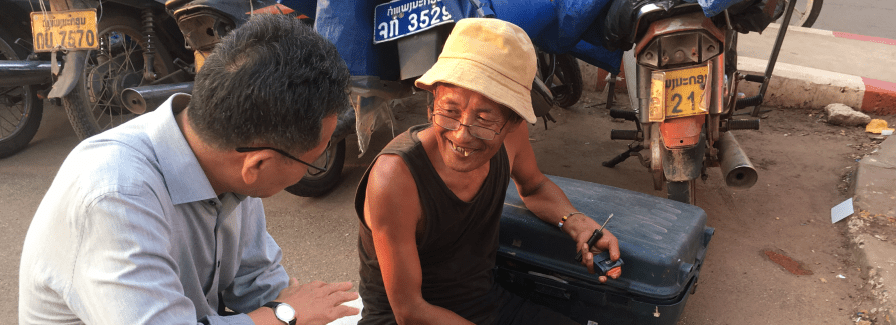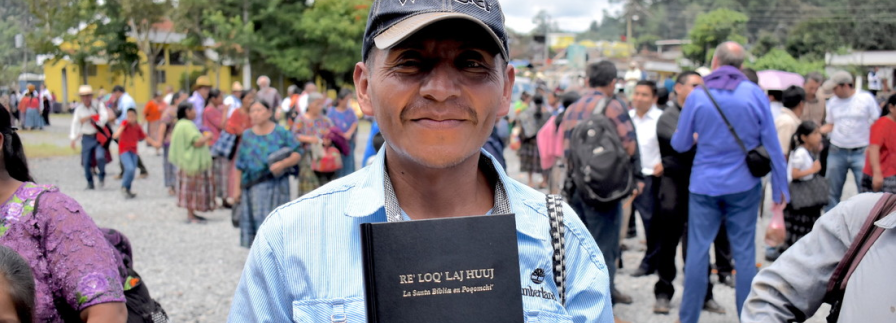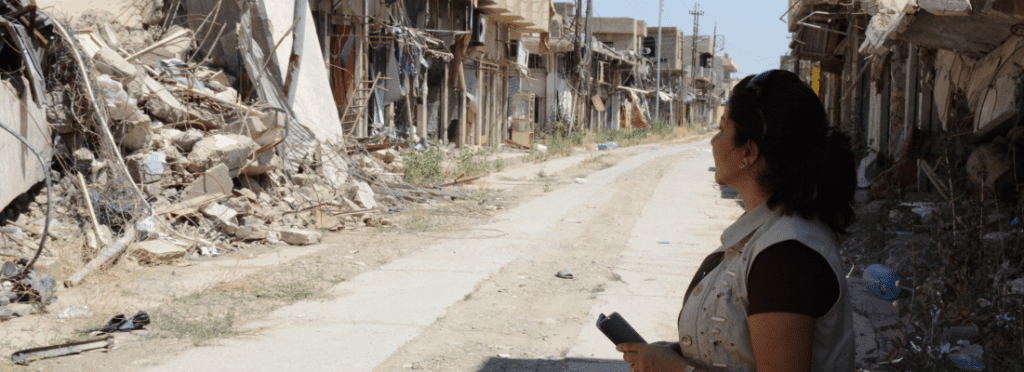This is the remarkable story of penniless, homeless war veteran, who buys a Bible that someone found in a trash can and has his life turned around. Suddenly he discovers hope. He reads and studies the Bible daily praying to God while sitting on his piece of cardboard on the pavement. God answers his prayers and he finds a home. By Arun Sok Nhep, United Bible Societies Team Leader, Asia Pacific As I was walking across Vientiane’s market (Laos) after dinner, I noticed a man sitting on the street who appeared to be homeless. I was intrigued as he didn’t seem to be begging but was intensely reading a book and taking notes. Curious, I approached him and immediately recognised the Revised Lao Bible we published in 2012. Even more intrigued, I asked him where this Bible came from and he told me he had purchased it from someone who had found it in the trash.





